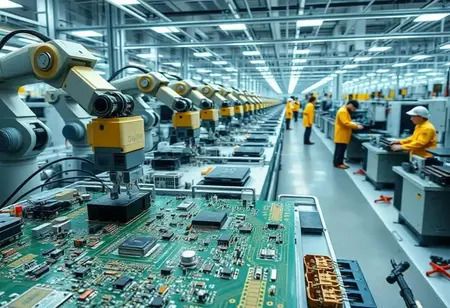
Agnikul Launches Large-Format Additive Manufacturing Facility


Agnikul Cosmos, a prominent player in the private space-tech sector, announced the launch of an advanced additive manufacturing facility focused on aerospace and rocket systems.
The center implements a completely integrated system encompassing design, simulation, printing, post-processing, and finishing to improve quality, reliability, and supply chain strength, while reducing the cost of construction for space by 50 percent.
For the first time in India, the facility also allows 3D printing of aerospace and rocket parts reaching up to one metre in height.
Agnikul now enables the production of components once deemed challenging for additive manufacturing, allowing them to provide fully completed, flight-ready hardware in just a few days, greatly speeding up development schedules and broadening the possibilities of 3D printing.
Also Read: World EV Day 2025: Steering India towards a Sustainable Tomorrow
“Agnikul was started with the goal of making space available to everyone. One way to do that is to build capability that allows us to advance rocket manufacturing with precision while also focusing on quality,” says Srinath Ravichandran, co-founder and chief executive officer of Agnikul Cosmos.
Also Read: PM Modi Turns 75: Key Records and Milestones of His Journey
“By developing not just printing capacity but also full-scale machines in-house, we are equipping ourselves to build space transportation systems faster, bringing us one step closer to taking Agnikul’s innovations & our customers to space,” adds Srinath.
Complementing the printing capacity is an indigenously designed and developed de-powdering machine, an important post-processing system that ensures flawless surface finish and space-grade quality on additively manufactured parts. Designed and developed in-house, the machine reduces external dependencies and ensures consistent quality.
Moin SPM, co-founder and chief operating officer of Agnikul Cosmos, said, “Our goal has always been to make access to space reliable and cost-effective. With this facility in place, we are advancing our own launch readiness and also helping shape the foundation for a self-sustaining and globally competitive space industry in India.”
Also Read: 5 Major CPO Appointments in 2025
Agnikul currently has a US patent for rocket engines that are 3D-printed as a single piece. This facility will enable the company to produce engines that are one meter long and provide seven times the thrust of its previous models. Now that this facility is operational, the company is able to produce these engines in a matter of days, all internally -- speeding up development processes and facilitating swift innovation at large scale.